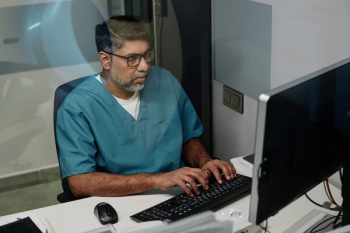
Who Should Worry in Rad Groups?
Someone in a group should probably be worried, but who's the best person for the job?
I’ve written before about how some would consider me a worrier. That is, I repeatedly and redundantly think about things that haven’t happened yet, might not happen, or already occurred. Whether or not I can do anything about them. I won’t rehash why
Pertaining to professional matters, I’ve noticed that such ruminations often pertain to things beyond my station. For better or worse, my career thus far has been that of a “film reader” (though we really need to retire that phrase-most of us are “screen readers” now). I’ve held some titles, true, but never been all that high up the chain of command in the practices I’ve inhabited.
That hasn’t stopped me from thinking, as I flail away at my worklists, about the various ways in which said practices could do better: Improved productivity, better patient care, recruitment/retention of referrers (or rads), organization of ancillary staff, competition with other radgroups in the area, etc.
Even without any actual control over such things, it’s not unreasonable for a rad to care about them, if not to express thoughts on the matters to those who do have control. The rad wants his/her work to be the best it can, in the most facilitating environment. And probably also wants his/her group to not just survive, but flourish-whether to ensure the rad still has a job or in the hope of the group’s rising tide lifting the rad’s own boat. There is, of course, also the chance that the rad wants to be seen as someone with commitment to the group, and ideas to benefit it, such that the rad might rise within the group’s ranks as time goes by.
I’ve come to consider such thoughts as “upward” worrying. That is, focused upon things above one’s pay-grade. There is also “downward” worrying, which would be when someone higher up the chain of command dwells, perhaps excessively, on the doings of those s/he’s overseeing.
Related article:
The former type can run a spectrum from loyal engagement to delusions of grandeur, just as the latter can range from running a tight ship to micromanaging. I imagine most readers have seen examples running the gamut, so I won’t bother with examples here (although the temptation to call out an old boss or two is strong).
The thought recently occurred to me that although there is probably no way of objectively quantifying it, most groups, and indeed other hierarchical organizations, have a certain proportion of upward versus downward worrying going on.
That is, in radgroup A the worker-bees might be upward-worrying a lot more than the leaders are worrying downward about them. Sentiment in such a place might be that there is a lack of organization and direction. The workers might sense that their group is rudderless, and missing out on opportunities for a brighter future if it even survives.
Meanwhile, in radgroup B, the leadership might have the weight of the world on its shoulders, and the screen-readers are, if not carefree, at least unburdened. They come to work, read some cases, and go home. In their off-time, thoughts of the workplace don’t haunt them in the least-while the leadership is mentally on-call 24/7/365.
With such variability in the distribution of worrying, one wonders if there is a “sweet spot” optimal for group morale, efficiency, and overall well-being. Is it best for everyone to be worrying equally? Should the responsibilities and privileges of higher rank come with a greater proportion of worry? Does the group’s size or other particular situation impact upon this (that is, should the leader of a group of 5 rads have a greater proportion of the worry than the CMO of a group of 50)?
Newsletter
Stay at the forefront of radiology with the Diagnostic Imaging newsletter, delivering the latest news, clinical insights, and imaging advancements for today’s radiologists.













